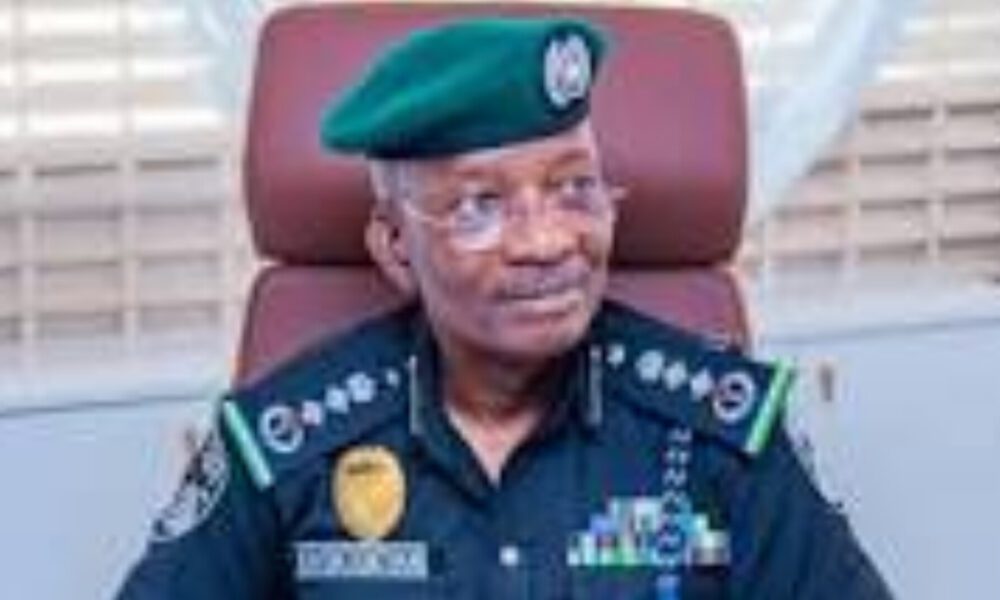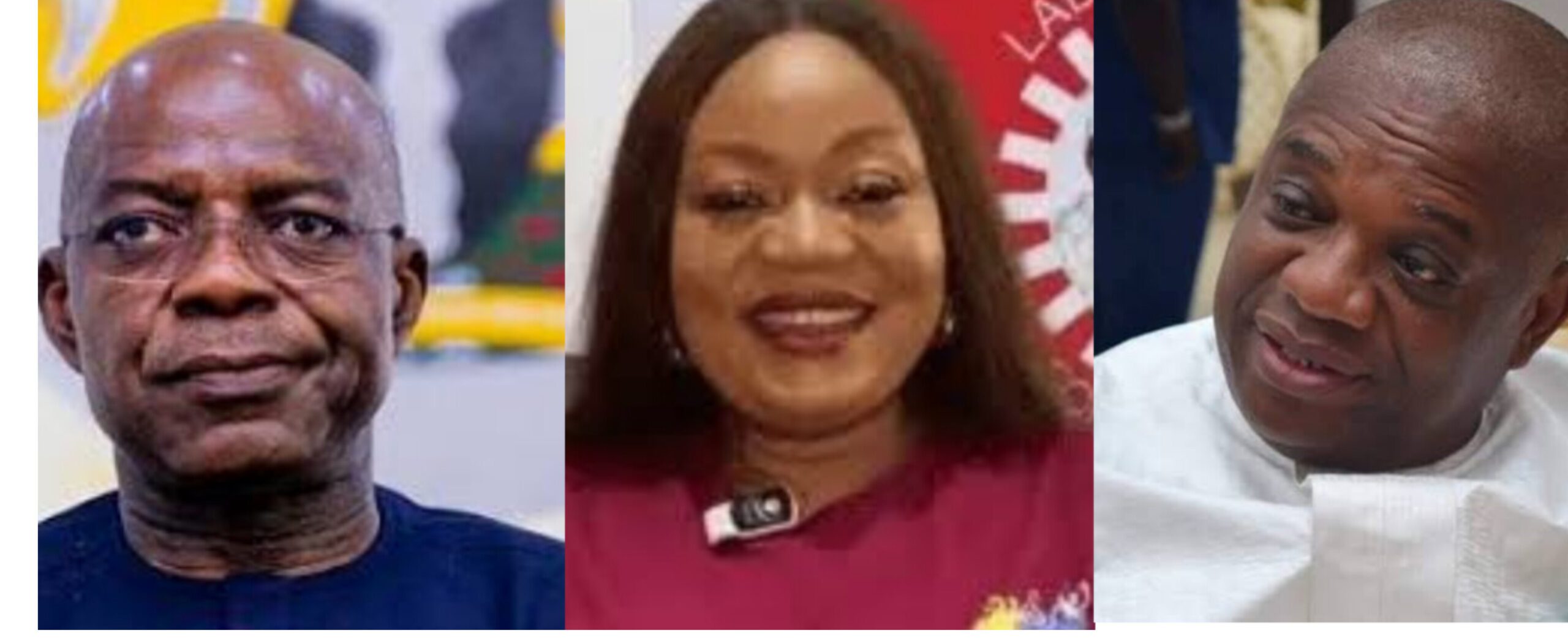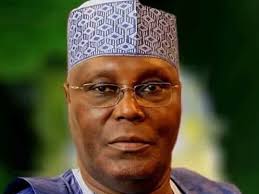By Tunde Olusunle
When he flung Sanusi Lamido Sanusi, (SLS) out of the window of the Emir’s palace in Kano four years ago, Abdullahi Ganduje would have least imagined what is playing out today. Ganduje was the “Lord of the Manor” in Kano State, the all-powerful chief executive. Recall video clips of Ganduje allegedly stuffing wads and packs of crisp, mint-fresh dollar bills into the bottomless pocket of his babanriga ahead of the 2019 general elections. They were reportedly gifted to him by some contractor ally of the erstwhile Kano governor who was repaying a good turn. Graphic and unassailable as that short motion picture was, former President Muhammadu Buhari who rode into office on the camelback of now suspect integrity in 2015, volunteered a baffling defence for Ganduje. He swore Ganduje was most probably participating in a Kannywood movie, the way the film industry up North is described. Buhari who has never been known to operate a tablet, nay a notepad, suggested that advanced technology could actually simulate what we all saw in that short clip!
Ganduje was the prototype alagbara ma m’ero as we say in Yoruba. This interpretes as the “maximally muscular, minimally reasonable.” He fought a few other prominent Kano leaders during his heydays in Government House. Recall he carried his unabated squabbles with one of his predecessors, Rabiu Musa Kwankwaso to the State House, Aso Villa, during the early weeks of the Bola Tinubu government. Told on one occasion that Kwankwaso was in a particular section of Aso Rock same time as he was in the complex, a vexed Ganduje said Kwankwaso should consider himself fortunate. He said he, Ganduje would have slapped Kwankwaso if he sighted him in the Villa! That would have caused a scene in Nigeria’s seat of power. I’m now just imagining how Tinubu would be trying to restrain Ganduje, in the forecourt of the office of the President, while Vice President Kashim Shettima will be pulling at Kwankwaso’s agbada in a bid to manage the situation.

Ganduje reportedly considered Sanusi too independent-minded and outspoken for a natural ruler. Sanusi was governor of the Central Bank of Nigeria, (CBN), before being appointed Emir in 2014. He had always had a radical streak about him which culminated in his suspension as CBN head in 2014 for blowing the whistle on the theft of $20 Billion in accruals from crude oil sales. As Emir he considered aspects of the religious and cultural practices of his emirate repugnant. He opposed the “ultra-conservative interpretation of Islam” in some parts of northern Nigeria, which discouraged girl-child education, family planning, even inoculation against potential healthcare afflictions. He had reservations about the style of Ganduje as governor and didn’t put a veil over his dislike for the return of Ganduje to Government House in 2019.
He believed Ganduje shouldn’t have made it back if the poll was fairly and transparently conducted. March 9, 2020, Ganduje upended Sanusi. He was accused of negatively impacting the sanctity, culture, tradition, religion and prestige of the Kano emirate, and disrespecting the governor’s office. He was also alleged to have disposed of property belonging to the state and the misappropriated of the proceeds. It was a case of digging several manholes for a prey in a bid to ensure he falls into one of the several traps. He was summarily banished to Nasarawa State for effect. Sanusi sought reprieve in the courts which ruled it was an overkill to fling him to a remote community faraway from his family and more accustomed home in Lagos. Within a few days, Nasir El Rufai, Sanusi’s longstanding friend who was governor of Kaduna State, personally enforced the evacuation of Sanusi from Awe local government area in Nasarawa State.
For whatever his contributions were to the emergence of Tinubu as president after the 2023 polls, Ganduje believed he would be compensated with a ministerial slot in the former’s regime. Like Nyesom Wike, David Umahi, Mohammed Badaru Abubakar, Atiku Bagudu, Simon Lalong, former governors of Rivers, Ebonyi, Jigawa, Kebbi and Plateau states, Ganduje dusted his curriculum vitae to pitch for a slot on Tinubu’s federal executive council. His five colleagues in the “2015 – 2019- 2023 class of governors” made the cut, not Ganduje. Tinubu spontaneously made him chairman of the All Progressives Congress, (APC], the vehicle which delivered him as president. Abdullahi Adamu his predecessor and former governor of Nasarawa State was, as has become standard practice in Nigeria’s notorious political rule book, schemed out and compelled to resign from office.
If Ganduje ever thought his chairmanship of the APC was going to be a walk in the park, he was thoroughly mistaken. Indeed, he’s grossed sufficient experience in his present office to know that there are sharp differences between wholesale insulation in Government House, and the inevitable overexposure of party leadership. Last April, a faction of the APC in Ganduje’s primary “Ganduje ward” in Dawakin Tofa local government area of his home state, Kano, suspended him from the party. Haladu Gwanjo, legal adviser of Ganduje’s ward led some party leaders to pronounce the suspension. They advocated the return of the national chairmanship of the APC to the north central zone, where Ganduje’s predecessor, Adamu, hails from. The young Turks canvassed due process in party administration, consistent with the “renewed hope” mantra of the APC. Ganduje made a hurried recourse to the law courts for momentary reprieve.
Thursday May 23, 2024, Sanusi Lamido Sanusi was reinstated as Emir of Kano by Ganduje’s successor in Kano State, Abba Yusuf. His cousin and successor, Aminu Ado-Bayero, was unceremoniously removed from office. The splinter emirates created by Ganduje in his bid to whittle down Sanusi’s authority as prime monarch in Kano, were similarly dissolved. The edifice which Ganduje built four years ago was apparently built of straw and spittle. Governor Abba Yusuf is a product of the Kwankwasiya political tendency in Kano politics, a creation of Rabiu Kwankwaso. Those who know a little about Nigerian politics will recall that Kwankwaso’s emergence in our politics, predates the fourth republic. He was an ardent student of the talakawa political orientation, pioneered by the venerable Kano-born leader, Aminu Kano. Kwankwaso was Deputy Speaker in the House of Representatives of the Ibrahim Babangida political experimentation of 1992 to 1993.
Whereas the Kwankwasiya movement had long been entrenched, it was not until the run-up to the 2023 elections that Kwankwaso adopted a new platform, the Nigeria National People’s Party, (NNPP), on which he is espousing the populist philosophy of the Kwankwasiya brigade. Abba Yusuf rode to office on the back of this invention. It was the same way Chukwuemeka Odimegwu Ojukwu the famous Biafran war lord, established the All Progressives Grand Alliance, (APGA) in Anambra State. The party has remained a force in the politics of the state and indeed the south east. It has produced three Anambra governors in succession, notably Peter Obi, Willie Obiano and the incumbent Chukwuma Soludo.
Abba Yusuf has made no pretences about his disdain for Ganduje and everything he represents. Much as some of Yusuf’s early actions in office were generally perceived as wasteful, he nonetheless brought down as many edifices in Kano as bore the imprimatur of Ganduje. The “Kano golden jubilee roundabout” built to commemorate the 50th anniversary of the creation of Kano State and structures built inside the filin sukuwa, (Kano race course), were hewn on Yusuf’s orders. The hajj camp which was reportedly bastardised by Ganduje who allegedly parcelled parts of it to his friends and associates was equally felled. There were suggestions that the value of the demolitions carried out by Yusuf could be in excess of N200Billion. Such is the anti-Ganduje sentiment in contemporary Kano State.
The way and manner the legacies of Abdullahi Ganduje are unravelling in Kano State should serve as a lesson to the shortsighted, incapable of seeing beyond the bridges of their nose. History is replete with the deconstruction of many leaders after their rulership and indeed keeps repeating itself in our sociopolitical experience. Those who are not circumspect, however, are too distracted by the allure and bliss of their immediate office, to think. They continue to drift, blunder and flounder, unmindful that time is their ultimate nemesis. Ganduje is just one year out of office, yet many of the decisions he made while in power for eight years are being unmade and thrown at his face like rotten tomatoes.
Until I joined him on the table he was seated at a wedding reception we both attended in Lagos a few weeks back, Rotimi Amaechi, governor of the oil-affluent Rivers State for eight years and Transportation Minister for another eight years was a lonely man. It turned out we flew back to Abuja on the same flight same evening after the event and sat not too far from each other. He opened the overhead locker atop his seat to bring out his luggage himself. Is anyone following the Yahaya Bello saga? He mindlessly trampled upon the hapless heads of his constituents in Kogi State for eight unbroken years? He left office last January and life has not been the same again. He has been declared wanted by at least one anti-graft agency. He will be arraigned in the rectangular, wood-panelled cubicle of the courtroom in a fortnight. A lesson for all.
Tunde Olusunle, PhD, is a Fellow of the Association of Nigerian Authors, (FANA)




